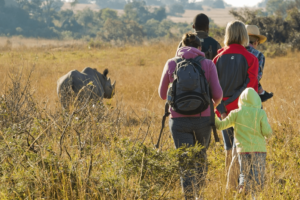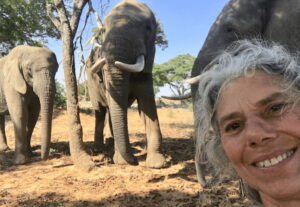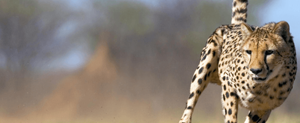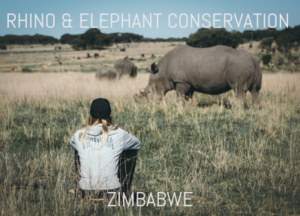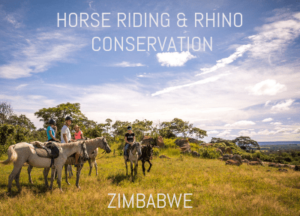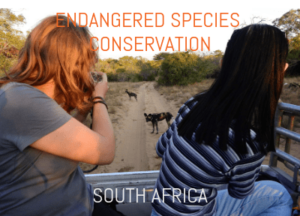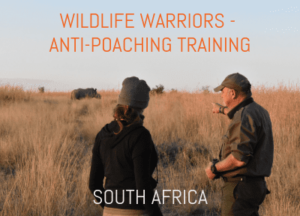Rhino poaching in Africa has reached crisis point, and across the globe, rhino habitats are shrinking.
Once found across Asia and Africa, today three of the five remaining species of rhino are Critically Endangered, facing a high chance of extinction in the not distant future.
Why you should help with rhino conservation:
In recent years rhino numbers have dropped dramatically, primarily due to poaching for their horn, but also threats from habitat loss and political conflict.
1) Horn poaching in South Africa
Poaching in South Africa is driven by the demand for rhino horn from Asian countries, particularly Vietnam, where in addition to being used in Traditional Chinese Medicine, is used as a status symbol to display success and wealth.
South Africa is increasingly being targeted by international criminal gangs using sophisticated tracking and killing equipment.
2) Habitat loss
Clearance of land for human settlement, agricultural production and logging is constantly increasing. This is a major threat to all species, and is a barrier to enabling rhino numbers to recover and increase.
3) Political instability
Where there is limited or no law enforcement, rhinos have little on the ground protection, opening doors to poaching and corruption. Wildlife crime is arguable taken less seriously than other international crimes such as drug smuggling and human trafficking. The deterrents are low and the integrity of law enforcement is consistently failing.
How you can help with rhino conservation:
We have a number of projects focused on black and white rhino conservation. They rely on volunteer involvement to facilitate their work and keep operating successfully.
Rhino & Elephant Conservation, Zimbabwe
Based on a 10,000 acre private game reserve in Zimbabwe, the conservancy has protected and bred black rhino since the mid 1980s, when the government moved several orphaned black rhino from the Matusadona National Park into Intensive Protection Zones (IPZ). The programme have seen more than 20 births, with 12 rhino released back into National Parks across Zimbabwe.
Volunteers help with rhino conservation by working closely with the seven black and three white rhino, supporting the reserve’s permanent anti-poaching staff with boundary patrols and snare sweeps, and carrying out animal monitoring and observations.
Horse Riding & Rhino Conservation, Zimbabwe
Based at the same rhino conservancy as the Rhino & Elephant Programme, horseback volunteers directly assist the Anti-Poaching Unit in boundary patrols, fenceline monitoring, animal healthchecks and snare patrols. The horseback programme provides vital manpower to the reserve team and also assists in night patrols and camp-outs.
Endangered Species Conservation, South Africa
Key to the survival of Africa’s endangered species is ensuring that they are reintroduced to protected areas, where they can safely roam and strengthen in number. Critical to the success of reintroduction is the intensive monitoring of the animals on a daily basis, to assess how they are doing. The project have assisted in the reintroduction of over 200 endangered Black Rhino in the past 3 years and have have implanted tracking devices on the rhinos during the relocation process. This enables the close monitoring of these ancient animals to ensure their safety. The same process apples to all the endangered and priority species that are reintroduced.
Volunteers on the programme are essential to the daily monitoring of key focus species across five reserves in the Eastern Cape of South Africa, where poaching has been rife. Black and white rhino are crucial species to the area. Key volunteer tasks include keeping track of animal movement patterns, habitat utilisation, population demographics, snaring and poaching incidents, and animal breakouts. This information has numerous management applications, including the planning of successful introduction and removal strategies of priority wildlife species.
Wildlife Warriors Anti-Poaching Training Course, South Africa
In 2007 there were just 13 rhino poached in South Africa; by the end of 2017 that number had risen to 1,028, with the illegal killing of rhinos spreading from South Africa into neighbouring Mozambique, Zimbabwe and Namibia.
This anti-poaching training programme gives volunteers an in-depth understanding of conservation ethics and practices. You will gain experience in the critical environmental factors involved in successful wildlife protection and long term conservation, learn advanced anti-poaching techniques and take part in real life wildlife operations. This is a serious wildlife course based in the heart of the African bush where you will actively contribute to the protection of vulnerable species.
– – – – – – – – – – – – – – – – – – – – – – – – – –

